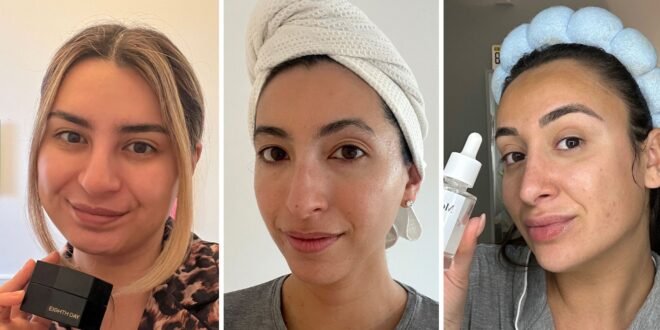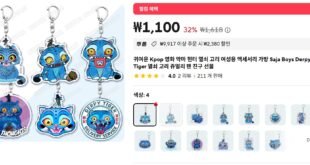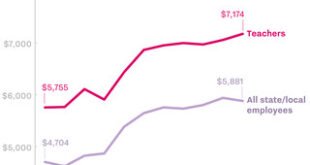Key ingredients: bakuchiol, sacha inchi oil, squalane, glycerin | Who it’s For: everyone | Fragrance-free: yes
Frequently Asked Questions
What is bakuchiol?
For the uninitiated, “bakuchiol is an antioxidant found in the seeds of the plant Psoralea corylifolia (babchi herb),” New York City-based board-certified dermatologist Dendy Engelman, MD, tells Allure. “It has a long history in medicine for its healing properties, including soothing rashes, calming redness, and healing cuts.” Used regularly in Chinese medicine to treat a range of skin concerns, bakuchiol has gained serious traction in stateside skincare.
“The data is really impressive,” says cosmetic chemist Ni’Kita Wilson. “You get similar efficacy from bakuchiol [as retinol] without the drying side effects,” she told Allure. Like traditional retinol, bakuchiol can help smooth skin texture, reduce hyperpigmentation, and restore elasticity. “Bakuchiol, like retinol, works by increasing cell turnover, thereby stimulating collagen production and diminishing wrinkles, skin laxity, and overall photodamage,” explains NYC-based dermatologist Ellen Marmur, MD. In short, it’s a gentler way to get that retinol glow—without the irritation.
How is bakuchiol different from retinol?
The key difference is that retinol is known for being harsh and drying, especially for sensitive skin, while bakuchiol is far less irritating. “It has anti-inflammatory and antioxidant properties shown not only to stimulate collagen production but also to be more gentle on the skin and so may be better tolerated by those with dry, sensitive skin,” explains Dr. Marcbein. “The downside to retinol is that it can cause irritation of the skin, limiting its use,” adds Joshua Zeichner, MD, a board-certified dermatologist based in New York City. Until bakuchiol hit the mainstream, the only real workaround for retinol-induced roughness was slathering on excess moisturizer—which, let’s be honest, wasn’t always enough.
Because of the gentle properties of bakuchiol, it’s also recommended for oily or acne-prone skin types. Another bonus: Unlike retinol, bakuchiol is entirely safe to use while pregnant or breastfeeding.
Meet the Experts
- Shari Marchbein, MD, a board-certified dermatologist based in New York City
- Caroline Robinson, MD, a board-certified dermatologist based in New York City
- David Kim, MD, a board-certified dermatologist based in New York City
- Marisa Garshick, MD, a board-certified dermatologist based in New York City
- Michelle Henry, MD, a board-certified dermatologist based in New York City
- Mamina Turegano, MD, a board-certified dermatologist based in New Orleans
- Dendy Engelman, MD, a board-certified dermatologist based in New York City
- Ellen Marmur, MD, a board-certified dermatologist based in New York City
- Joshua Zeichner, MD, a board-certified dermatologist based in New York City
- Ni’Kita Wilson, a cosmetic chemist
How we test and review products
When Allure tests a product, our editors look at it from every angle in an effort to best serve you. We review ingredients, scrutinize brand claims, and, when necessary, examine peer-reviewed scientific and medical studies. In addition to testing each and every product that’s included in each and every review, we rely on experts who shape their fields, including dermatology, cosmetic chemistry, and medicine, to help us vet the ingredients and formulas.
 Info Malang Raya Its All About World News
Info Malang Raya Its All About World News




